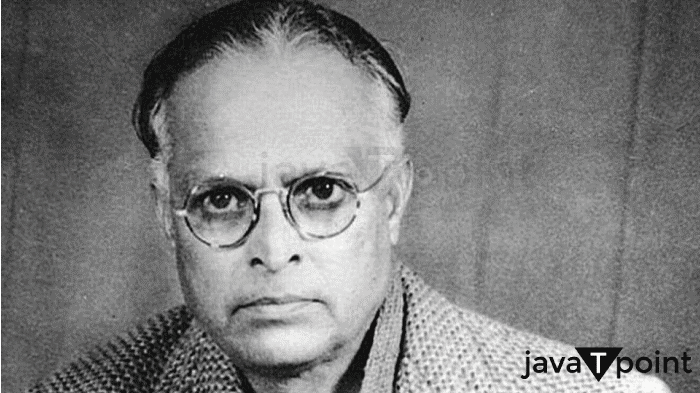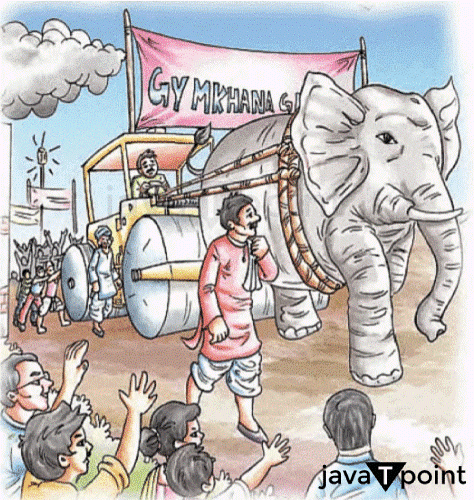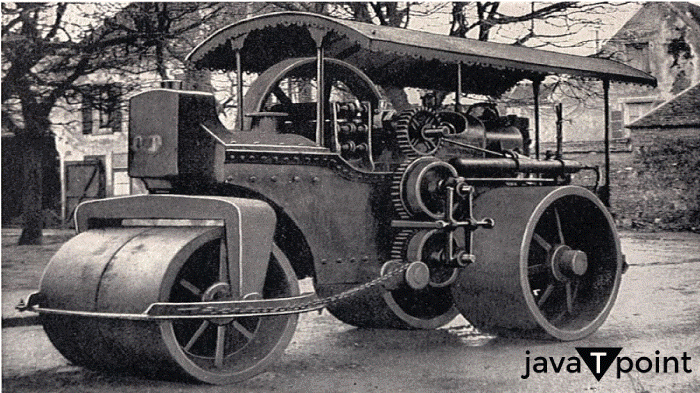Engine Trouble by R.K. Narayan SummaryIntroductionEngine Trouble is a short story written by R.K. Narayan in his book Malgudi Days, published in 1943 by Indian Thought Publications. Themes of realism, optimism, good fortune, accountability, authority, resolve, and resourcefulness are present throughout Engine Trouble. An everyday, regular resident tells the tale in the first person. There is a little irony in depicting people, events, and locations.  In the story, an engine that is designed to move becomes immobile. That is the storyline point that is the most ironic! In the characterization and ambiance-building, one may also detect a characteristic Indian milieu. The narrator receives a visit from luck through an earthquake, a Swamiji, and an engine three times. The fact that members of the community and those in positions of authority could significantly ease the narrator's life is also hinted at subtly. On every level, there has been a systematic failure. Overall, Engine Trouble is a pleasant, gentle read that resembles a serene river with profound undercurrents of complexity yet appears simple on the surface. About the AuthorRasipuram Krishnaswami Iyer Narayanaswami, better known as R.K. Narayan, was born in Chennai, India, on October 10, 1906. He was a novelist and writer from India who became famous for his novels and short stories set in the fictitious South Indian town of Malgudi. Along with Mulk Raj Anand and Raja Rao, he was a notable author of early Indian literature in English.  He opened up a window into Indian culture and sensitivities for people in other nations, so introducing them to India. By releasing Swamy and Friends, The Bachelor of Arts, and The English Teacher in England, his friend and mentor Graham Greene presented him as a writer to the West. Narayan emphasizes the characters' daily lives and societal surroundings. He's been equated with William Faulkner, who developed a comparable imaginary community and similarly probed the energy of everyday life with humor and compassion. For a more than 60-year career, he received awards such as the Sahitya Akademi, the Padma Bhushan and Padma Vibhushan, the AC Benson Medal from the Royal Society of Literature, and honorary membership in the American Academy of Arts and Literature. He died on May 13, 2001. SummaryAn anonymous narrator tells the story in the first person. He claims that someone who owned Gaiety Land visited Malgudi a while back. From all across Madras, different store owners arrived at Gymkhana Grounds throughout the night. Through games and slide displays, the fair offered a variety of entertainment. The entrance fee to the store was two annas. The types of performances on display there were shooting ranges, lotteries, performing parrots, and the looping loop in the Dome of Doom. One area of the fair quickly gained much attention. At the fair, numerous prizes were up for grabs, including cameras, sewing machines, pin cushions, and even a road engine. The narrator bought a ticket with the number 1005, so he won a road engine. It was a prize that he could only take home with first setting up a storage space. After learning about the situation, Gaiety Land's owner consented to keep the road engine until the fair was over. He made it plain that after the fair, the narrator would need to plan to remove the road engine. The narrator got a notification from the municipality telling him to take the road engine away or face paying rent for it when the fair was over, and the owner packed up the shops. Despite being poor, the narrator paid Rs 30 at Rs 10 per month to keep the road engine in the Gymkhana Grounds. To pay the bills, the narrator was required to hold one or two of his wife's jewels in pledge. The only thing the narrator can do because he has no use for a road engine is to hold out hope that someone will buy it from him or that he might be able to give it away to someone. He went to the cosmopolitan club's secretary in his community to sell him the road engine. The club's administration declined to purchase the tennis court, even though it had to be rolled every morning. The narrator also approached the municipal chairman, but even though a road engine was required for several municipal projects, the chairman declined to buy it from the narrator. The road engine wastes the narrator's money on rent while serving no useful purpose. Similar to how his marriage is beginning to deteriorate, the narrator's troubles with the road engine are causing problems for him. Making matters worse, the municipal chief wants the road engine moved, which gives the narrator more trouble as cattle show on the Gymkhana Ground is being organized. The narrator grows restless. He intends to drive the road engine to a field that belongs to his friend; he requires a driver to deliver the engine to the location. He makes this request to each bus driver he comes across. Apart from them, he requests assistance from a postal engine driver. However, his efforts could have been more successful. Finally, the local temple's priest consents to give the narrator the elephant if it can help him. The narrator accepts the priest's proposal. He needs a few guys to push the road engine, so he assigns 50 coolies. As a result, the narrator is forced to squander the money he has saved. Additionally, he employs Joseph, who was a bus driver who had been fired from his position. On the condition that he cannot start the road engine, Joseph agrees to operate the engine.  The road engine is being pushed from behind by fifty coolies, the temple elephant is fastened with sturdy ropes, and Joseph sits in the driver's seat. Many people remain to observe what occurred. The vehicle's engine gets going. The narrator thinks it is the most magnificent time of his life. The road engine starts to act once it gets to the road normally. The road engine is propelled in one direction by the elephant, Joseph makes irregular steering movements, and the road engine is pushed by fifty coolies at will. All of these seem beautiful, but suddenly because of the zig-zag movement of the road engine, it strikes the compound's wall on the opposite side, and some of it is reduced to powder. The crowd roars vigorously in response to this. The elephant does not like how the humans act, so it yells, presses against the wall, rips the rope, and kicks at the wall, breaking down a section of the broken wall. The fifty coolies fled out of panic, the crowds caused mayhem, and the police arrived and detained the narrator. The narrator discovers that he must perform certain tasks after being released from prison after a few days. These tasks include fixing a few yards of the wall, paying the fifty coolies' wages, paying Joseph's wages even though he was unable to control the engine, and providing medicine for the temple elephant's injured knee as a result of the injury sustained while the elephant was kicking and breaking the wall. After all, the temple administration would ignore that he didn't use the temple elephant to break the wall. The narrator becomes very perplexed and cannot find any way out to pay the bills. When people encounter him on the street, they poke fun at him. The narrator then sends his wife to his father-in-law's house and leaves Malgudi on a dry night. A Swamiji appears in Malgudi and demonstrates the actions that might be performed through yoga. He ate glass utensils, lay on boards with nails pointing up, swallowed sharp nails after biting them, licked hot iron rods, stopped breathing, and kept himself alive underground, among other things. Now he says he may have been run over by a road motor while remaining unharmed. The Swamiji's aide appeared skilled in operating any road motor. The narrator wishes to capitalize on that particular circumstance. In exchange, he asks Swamiji's aide to drive his road engine to his chosen location. He is ready to lend the Swamiji his road engine. However, the narrator's plans do not pan out because of the limitations placed on the Swami by the magistrate. The narrator has experienced frustration with people in power a second time. The magistrate decided that the Swamiji could not consume potassium cyanide or drive a road motor over his chest. The Swamiji departs the area, infuriated by the command. The aide goes after him. Then, while still holding the assistant's hand, the narrator pleads with him to drive the road engine to the friend's field. The assistant rejects the narrator's request. The story's conclusion is equally intriguing. The narrator finally receives assistance; this time, much to his astonishment, it comes from nature. That evening, an earthquake strikes the region. Doors and windows shook, and the mattresses toppled to the ground. The next morning, the narrator visits the location to examine the road engine. He witnesses the unimaginable. The road engine is nowhere to be found. Out of despair, he yelled. People search for the vehicle's powerplant. After a while, the road engine is discovered in a defunct well. The mouth of the engine was down when it entered the well. The narrator prays to God that he wouldn't encounter any more issues. Nevertheless, when the owner of the abandoned well realized what had transpired, he discovered a humorous aspect. He made a signal to the narrator to answer. He acknowledged that the narrator had been of great use to him. He said the municipality had repeatedly advised him to close the well since its water was the worst. He added that the cost had prevented him from acting in this area. The road engine, he said, "fits the well like a cork." He merely asked the narrator to keep the road engine in its current location. The narrator is still determining the proposal. The owner of the road engine then consents to release the narrator from all legal duties and commits to fixing the damaged wall. The fact that he wants the road engine retained in his well is still remembered. These, according to the owner, are adequate compensation. The road engine has also resulted in a few other expenses; the narrator informed the well's owner. The well's proprietor agreed to cover these costs. The narrator eventually passed by the route after a few months. He turned to face the well. The well's mouth had been sealed, he discovered. He was quite content. Brief AnalysisThe academic development of R.K. Narayan is perfectly reflected in Malgudi Days. According to the author, each of his tales exhibits a more straightforward storyline and language even as they grow more complicated in meaning to show the realm of India. An authentic Indian tale of bad luck is found in Engine Trouble, a short story from the book Malgudi Days. The themes of realism, optimism, luck, duty, and authority are explored in Engine Trouble. A reward the narrator wins is a costly nuisance in this Narayan story, which opens ironically. The narrator initially thought it was fortunate that he had won the road engine and greatly customized it. The road engine, however, has only led to the narrator's issues, as was already described, which could be the argument Narayan is putting forth. He might be implying that luck can have both good and negative sides and that someone like the narrator might experience nothing but terrible luck instead of being lucky. It may also be significant that the narrator personalizes the road engine since he might be doing so to fill a hole in his life. The road engine can signify a change in the narrator's social position. He possesses a special item, but no one wants to buy it. The road engine needs to be fixed. Due to the road engine's negative effects on his marriage, the narrator suggests his wife get in touch with her father to have him take her back to her hometown.  While not necessarily the most responsible for his acts, the narrator also wants to escape his problems. Previously, the narrator had a great deal of admiration for the road engine. This situation is different today. Sadly, the road engine, designed to move, only accomplishes a little moving in the narrative. People need to learn how to operate the vehicle's engine. The Swami is the source of the narrator's second stroke of luck. However, the narrator's plans do not pan out because of the limitations placed on the Swami by the magistrate. It could be Narayan's method of emphasizing to the reader that those in positions of authority may have excessive power or influence. The narrator's life would be much simpler if individuals in positions of power did not obstruct his plans. The narrative's conclusion is very intriguing because Narayan continues to explore the concept of luck, and it seems that the narrator can identify with the expression "third time lucky." The narrator's issues with the road engine have been rectified due to the earthquake. To make matters better, the narrator has also received compensation for any losses he might have suffered while attempting to transfer or get rid of the road engine. The narrator finally discovers someone who wants the road engine thanks to good fortune (earthquake). Even though the road engine was never used for the intended purpose, it is still useful to someone as it covered the mouth of the well, which was causing trouble to the well's owner. This could be significant since Narayan might be implying that everything serves a function to someone. Something has a function, even if it's not exactly the one for which it was designed. It is also apparent that the narrator no longer exhibits the fear he did during the story as he struggles to get rid of the road motor. The narrator is a contented man who can "heave a sigh of great relief" after the story's conclusion. Nature is a healer in the form of an earthquake on this particular occasion. By this, the author also signifies that nature remedies something a man cannot fix. The worries brought on by the narrator's winning the road engine can now be removed from his life. The narrator's life can resume its regular course. ConclusionThe story of "Engine Trouble" by R.K. Narayan transports readers into a scenario where the protagonist's run-in with a malfunctioning engine serves as a powerful allegory for the challenges that come with life. Narayan conveys a potent message on adaptability and persistence through the protagonist's unwavering will and ingenuity. The vivid descriptions and complex characters draw readers into the story, which lets them identify with the overarching theme of overcoming unforeseen obstacles. The emotional message of "Engine Trouble" is that how we respond to challenges reveals who we are and encourages us to see hardship as a chance for growth and success. Readers are still motivated by Narayan's superb narrative long after the book's conclusion. Next TopicEpithalamion Summary |